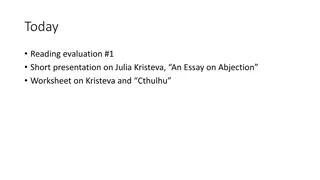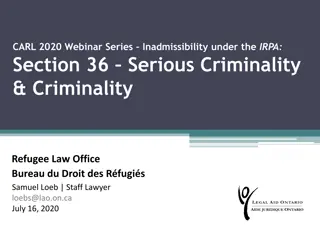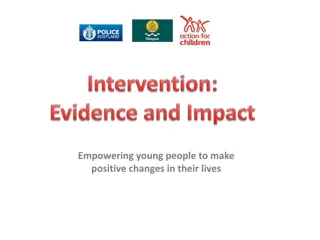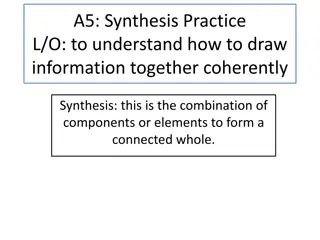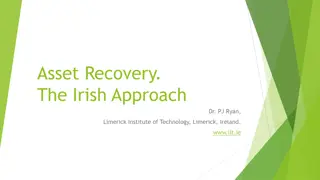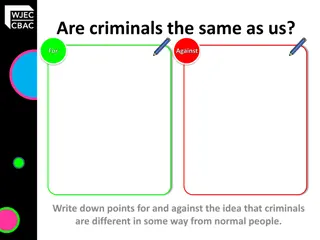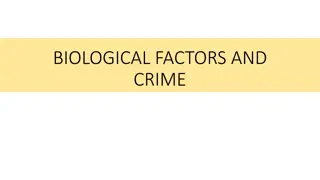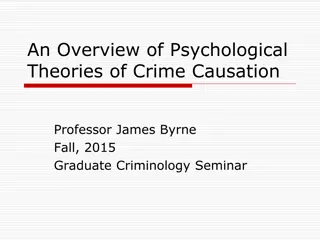Psychological Theories of Criminality: Understanding the Roots
Psychological theories of criminality delve into the association between intelligence, personality, learning, and criminal behavior. Major theories include Psychodynamic Theory by Freud, Behavioral Theory by Bandura, and Cognitive Theory by Kohlberg. These theories explore how unconscious mental pro
1 views • 20 slides
Exploring the Concept of Abject in Julia Kristeva's Essay and the Horror of Herbert West
Delve into the profound analysis of the concept of abjection by Julia Kristeva as it relates to identity, agency, and the boundaries of the self. Connect this theoretical framework with the unsettling and horrifying elements present in the narrative of Herbert West, considering the themes of intenti
0 views • 11 slides
Understanding Inadmissibility under Canadian Immigration Law
Explore the complexities of inadmissibility under Canadian immigration law, focusing on sections 36(1) and 36(2) of the Immigration and Refugee Protection Act (IRPA). Learn about serious criminality criteria, in-Canada convictions, criminality definitions, and the inadmissibility process. Discover h
1 views • 38 slides
Empowering Young People to Make Positive Changes in Their Lives
Intervention targeting young people aged 12-18 involved in organized crime groups (OCGs) or at risk of OCG involvement aims to divert them from a path of career criminality. The Lyons crime clan, a notorious group, is under scrutiny as nine members have traveled to Barbados. Scotland's underworld fe
0 views • 12 slides
Understanding Injustice Through Historical Perspectives
Explore the parallels between 19th and 21st-century perspectives on criminality and oppression. Through visual and textual comparisons, delve into themes of incarceration, poor conditions in jails, and the cruelty of slavery as portrayed by different writers across centuries.
0 views • 6 slides
Asset Recovery: The Irish Approach towards Criminality
The paper discusses the emergence and structure of the Criminal Assets Bureau (CAB) in Ireland, highlighting the shift in approach towards dealing with criminal activities and the focus on targeting the proceeds of crime. It explores the operational positions and approaches adopted by CAB, emphasizi
0 views • 7 slides
Exploring Biological Theories of Criminality: Insights and Controversies
Delve into the debate on whether criminals differ from the general population, examining biological theories of criminality and key figures like Johan Casper Lavater and Cesare Lombroso. Explore assumptions that physical characteristics and genetic factors may predispose individuals to criminal beha
0 views • 19 slides
Empowering Young People to Make Positive Changes in Their Lives
Empowering young people between the ages of 12-18 to make positive changes and steer clear of criminal activities. The intervention targets individuals involved in Organized Crime Groups (OCGs) or at risk of such involvement. The Lyons crime clan and Scotland's underworld are mentioned as examples,
0 views • 12 slides
Understanding Biological Factors and Crime: Genetics, Neurotransmitters, Neuro-biology
Biological factors such as genetics, neurotransmitters, and neuro-biology play significant roles in influencing criminal behavior. Genetics can predispose individuals to antisocial behavior, neurotransmitters like serotonin and norepinephrine impact social behavior, and neuro-biological damage can l
0 views • 13 slides
Psychological Theories of Crime Causation: An Overview
Psychological theories of crime causation explore factors such as psychological development, childhood experiences, socialization, and individual characteristics that contribute to criminal behavior. These theories delve into the influence of mental disorders, personality traits, and psychoanalytic
0 views • 16 slides

